XYLab
The project

5,532 € raised of 5,000 € needed (111 %)
- € 2 or more
18 backers
Ringraziamento pubblico su FB - € 10 or more
24 backers
Ringraziamento pubblico su FB + Lista donatori sul sito con logica Tagcloud - € 20 or more
11 backers
Ringraziamento pubblico su FB + Lista donatori sul sito con logica Tagcloud + Ringraziamento Tagcloud + 1 Cartolina stampata con stampomatica (http://www.stampomatica.com/) - € 35 or more
3 backers
Ringraziamento pubblico su FB + Lista donatori sul sito con logica Tagcloud + 6 Differenti Cartoline dell'identità del laboratorio completa stampata con stampomatica (http://www.stampomatica.com/) - € 50 or more
10 backers
Ringraziamento pubblico su FB + Lista donatori sul sito con logica Tagcloud + T-shirt serigrafata + 1 Cartolina stampata con stampomatica (http://www.stampomatica.com/) - € 70 or more
No backers
Ringraziamento pubblico su FB + Lista donatori sul sito con logica Tagcloud + T-shirt serigrafata + 6 Differenti Cartoline dell'identità completa del laboratorio stampata con stampomatica (http://www.stampomatica.com/) - € 100 or more
One backer
Ringraziamento pubblico su FB + Lista donatori sul sito con logica Tagcloud + T-shirt serigrafata + tutto il materiale di identità prodotto - € 250 or more
One backer
Ringraziamento pubblico su FB + Lista donatori sul sito con logica Tagcloud + T-shirt serigrafata + tutto il materiale di identità prodotto + Caratteri X eY stampate in 3d - € 500 or more
No backers
Ringraziamento pubblico su FB + Lista donatori sul sito con logica Tagcloud + T-shirt serigrafata + Una parola a piacere stampata in 3D con il carattere dell'identità - € 1000 or more
No backers
Ringraziamento pubblico su FB + Lista donatori sul sito con logica Tagcloud + T-shirt serigrafata + Cartoline + locandina + Drawbot (http://vimeo.com/73767942) - € 1000 or more
One backer
Per aziende e/o istituzioni: Ringraziamento pubblico su FB + logo come partner sul sito e sui vari Output comunicativi prodotti
X and Y - two research and cooperative making labs about “New Publishing” and “Videomhacking”
<< English version at the bottom of the page >>
XYLab è un doppio laboratorio di ricerca e co-progettazione organizzato da un gruppo di amici che crede nella condivisione del sapere.
I 5.000 € che vi chiediamo di aiutarci a raccogliere ci serviranno per acquistare il materiale utile alla costruzione di un Caschetto Neurale Opensource modulare e anche allo sviluppo di un nuovo progetto: Lantern.ino, che permetterà di interfacciare qualsiasi sensore o controller ad una fotocamera Canon, al fine di controllarne tutte le funzioni.
I € 5.000,00 ci servono per acquistare il seguente materiale utile al proseguimento delle nostre ricerche:
- EEG-ANALOG-ASM
- EEG-DIGITAL-ASM
- RS232 connector (e.g 9-pin female, with solder cups)
- Two meter extension serial cable with integrated USB translator
- 9v battery contact + case
- 9v battery
- switch
- ft di Ribbon Flat cable 34C
- Female Ribbon Cable 34P Socket
- Cables unit for M / F jumpers
- Cable unit for boards hooking
- Silver wire 1mm - 50 cm diameter
- Copperboard single layer 30cm X 30cm
- Lamp tlc
- 100pf
- Capacitor 0.01uf
- 200 kOhms
- 100ohms
- 10kohms
- RCA male connector 3.5 mm Stereo cable
- Jack socket 3.5 mm, 1/8 in
- Silver plate for DLR cable
- Meters of 0.25 mm mono-shield cable
- Plug din
- Socket din built-in
- Welder
- Thin welder tip
- 0.5 mm welder cable
- IDC Ribbon cables crimping tool
- 6 Arduino SMD
- 2 Arduino 2
- 2 Arduino Yun
- Raspeberry B
- SD-Card: Class 10
- CF CARD 64X 1000X
- Cables, connectors, sensors, switches
- Stepper motors
- Ink and toner cartridges
- 100 pens
- 100 pencils
- Markers
- Blackboard chalks
- 2 projection sheets
- A4 Paper
- stack sheets for pcb laser printing
- Toilet paper
- Soap
- Hose reel
- Waste basket
- Bags
- Ashtray
- Extension, slippers, electrical adapters etc.
- Walkie talkies
Crediamo che la crisi sia una grande opportunità per provare a rivedere alcuni processi, primo tra tutti la formazione. Piantiamo alberi.
X è Postdigitale - Economia del residuo - Autoproduzioni - Reti e Algoritmi
"New publishing" è un ambito di ricerca che si articola tra il design dei processi, la crisi, con la conseguente scarsezza delle risorse, le autoproduzioni e l'artigianato digitale e non, la consapevolezza del ruolo centrale delle reti nella nostra esistenza. La scelta di utilizzare la parola inglese "publishing" in luogo di quella italiana "editoria" è dettata dal fatto che la parola anglofona conserva un senso inerente l'atto della pubblicazione, il processo.
Di seguito alcuni dei progetti di ricerca che verranno sviluppati durante X:
Tavolo 1 / Caschetto Neurale
In questo tavolo realizzeremo, durante i 15 giorni, un prototipo di caschetto neurale capace di registrare l'attività elettrica del cervello su sei canali. Il progetto sarà sviluppato interamente (hardware + software) e rilasciato opensource. Attraverso questo prototipo, sarà possibile testare e sviluppare applicativi dedicati alla raccolta dati, all'analisi delle onde, ma anche alla generazione di output (visivi e sonori). Un ulteriore possibilità di applicazione è quella con il tavolo di Y Lantern.ino per controllare le funzioni di una fotocamera Canon, attraverso il caschetto. Questo tavolo vedrà tra gli altri, la partecipazione di Eugenio Battaglia, biohacker ed esperto in neuroscienze.Tavolo 2 / Human Ecosystem
Questo tavolo sarà dedicato alla partnership tra XYLAB e Near Future Education Lab, una rete internazionale di professionisti, docenti e studenti che lavora secondo i principi dell'etica hacker allo sviluppo di nuovi paradigmi formativi. Il progetto si basa sulla tecnologia HUMAN ECOSYSTEM sviluppata di Salvatore Iaconesi e Oriana Persico (docenti che guideranno l'attività del tavolo) del team Art Is Opensource.Tavolo 3 / In via di definizione
Riteniamo fondamentali per il nostro metodo didattico la possibilità di mantenere dei tavoli aperti in modo da definirne le attività il primo giorno durante il brainstorming iniziale tra studenti, tutor, docenti e staff.
Y è Hacking - Innovazione tecnologica - Innovazione sociale - Storytelling digitale
"Videomhacking" è un neologismo che descrive l'interazione tra hacking, innovazione tecnologica e storytelling digitale, al fine di trasformare il modo di raccontare storie attraverso il video.
Di seguito alcuni dei progetti di ricerca che verranno sviluppati durante Y:
Tavolo 1 / Lantern.ino
In questo tavolo realizzeremo, durante i 15 giorni, un prototipo di "lantern.ino" ovvero un device con una componente hardware (arduino) e una software (magic lantern), dedicato alle fotocamere Canon, grazie al quale sarà possibile controllare ogni singola funzione di controllo dell'immagine della camera rendendola interfacciabile con qualsiasi tipo di periferica di input e/o sensore, in wireless o via cavo. Il tavolo sarà coordinato da Marcus Ströbel, sviluppatore del team Magic Lantern.Tavolo 2 / Digital Storytelling
In questo tavolo verranno approfonditi i linguaggi della narrazione crossmediale: video, testo, immagine, tra web e social, indagando come questi si trasformano da una piattaforma all'altra. La riflessione è finalizzata ad approfondire la filiera di produzione di senso che viene messa in piedi ogni volta che raccontiamo una storia. Il rapporto tra forma e contenuto, così come indicato da McLuhan in Galassia Gutenberg è il nodo centrale di questo progetto di ricerca.Tavolo 3 / In via di definizione
Riteniamo fondamentali per il nostro metodo didattico la possibilità di mantenere dei tavoli aperti in modo da definirne le attività il primo giorno durante il brainstorming iniziale tra studenti, tutor, docenti e staff.
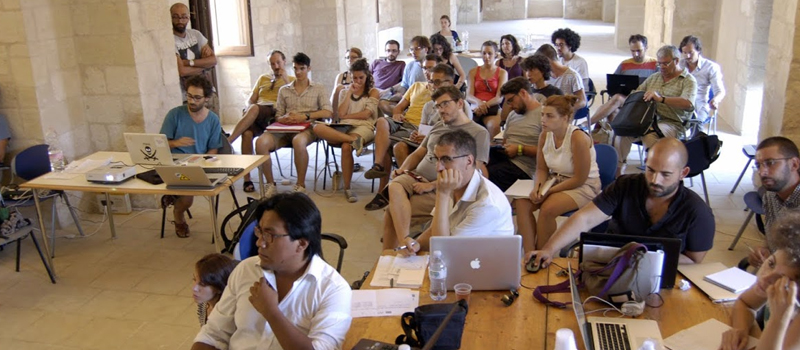
MISSION
Condividere con i partecipanti metodologie e tecnologie che possano rendere più efficienti segmenti produttivi già esistenti: abbassando i costi di produzione, stimolando l’autoproduzione come forma di auto-imprenditorialità e sviluppando capacità progettuali ibride, frutto della contaminazione tra diverse professioni, aprendo così a nuove opportunità. Svilupperemo 6 progetti di ricerca, che vedranno coinvolti 60 partecipanti più 24 tra docenti e tutor. Tutto il materiale verrà documentato e raccontato attraverso i canali di comunicazione web e social, e sarà rilasciato con licenza Open Source.
DIDATTICA
Uno degli aspetti più importanti di questo progetto che vi stiamo chiedendo di sostenere è la didattica. Abbiamo coinvolto un gran numero di docenti, con competenze in più discipline, che spaziano dall'informatica, al design, alla semiotica, alle neuroscienze, al fine di costruire un gruppo di lavoro straordinario. Ai docenti sono affiancati dei tutor, con competenze tecniche di altissimo livello. Il laboratorio è gratuito, e viene effettuata una selezione in base al CV e al portfolio.
Le attività si svolgeranno nell'arco di 7 ore e comprenderanno, oltre allo sviluppo dei project work, un'ora di alfabetizzazione informatica al giorno.
I 33 + 33 partecipanti saranno divisi in 3 + 3 tavoli di progetto (come spiegato precedentemente), ognuno dei quali seguito da 2 docenti e uno o più tutor.
Ogni giorno - dalle 14 alle 15 - uno tra staff, docenti e tutor terrà uno speech frontale per approfondire uno dei temi del laboratorio. Gli speech saranno aperti a tutti e disponibili in streaming. A chiusura del laboratorio sarà tenuta una conferenza stampa di presentazione dei risultati raggiunti, che coinvolgerà i partner e le istituzioni.
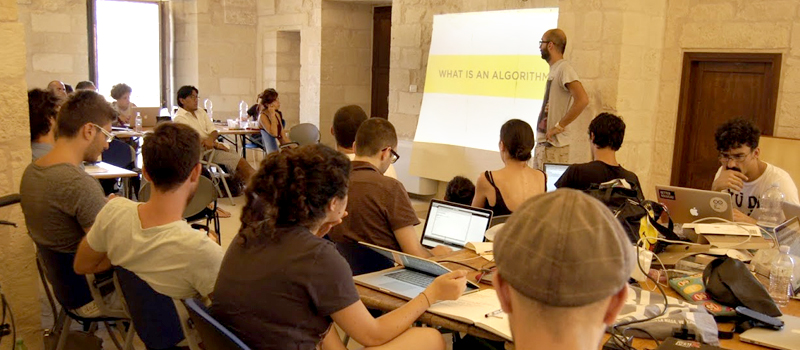
A CHI SI RIVOLGE IL LABORATORIO?
Designer, Maker e Hacker nell'ambito dell'editoria (digitale e tradizionale) e del video (cinema, tv, web). Studenti e professionisti di cinema, scrittura o sceneggiatura, informatica, interaction design. Aspiranti hacker del "video" e del "libro". Artigiani digitali. Innovatori. Pirati.
DOCENTI E TUTOR
Laboratorio X
Salvatore Iaconesi
è un interaction designer, ingegnere robotico, artista e hacker. TED Fellow 2012, Eisenhower Fellow dal 2013 e Yale World Fellow nel 2014. Attualmente insegna Interaction Design e cross-media practices alla facoltà di Architettura dell'Università La Sapienza di Roma, all'ISIA di Firenze, alla RUFA di Roma, e allo IED
Oriana Persico
laureata in scienze della comunicazione, esperta in pratiche partecipative e nell'inclusione digitale. È un'artista e una scrittrice. Ha lavorato con il Governo Italiano e l'Unione Europea alla creazione di processi, modelli e ricerche nel campo dei diritti digitali, dell'innovazione sociale e tecnologica, del "Digital Business Ecosystems" (DBE) e del "Open Knowledge".
Mauro Bubbico
designer e docente presso l'ISIA di Urbino, tra i principali progettisti della comunicazione in Italia
Leonardo Romei
docente di Semiotica e membro del Consiglio accademico all’Isia di Urbino, fondatore dello studio di progettazione della comunicazione QZR. Ha conseguito il Dottorato di ricerca in Scienze della comunicazione alla Sapienza di Roma e ha svolto attività di ricerca presso l’ESCoM – Equipe di semiotica cognitiva e nuovi media della FMSH di Parigi
Salvatore Zingale
è ricercatore presso il Dipartimento di Design del Politecnico di Milano e docente di Semiotica del progetto alla Scuola del Design. È responsabile scientifico del progetto di ricerca “HumanitiesDesign Lab”.
Silvio Lorusso
artista e designer. La sua attuale ricerca di dottorato in Scienze del design presso l'Università Iuav di Venezia è incentrata sulle relazioni tra pratiche del pubblicare e tecnologie digitali nel campo dell'arte e del design. Dal 2013 gestisce Post-Digital Publishing Archive
Eugenio Battaglia
biohacker con il collettivo BioPeers, studia biotecnologie molecolari all’Università di Torino. Ha fatto il suo tirocinio in memorie affettive all’Istituto Nazionale di Neuroscienze. È consulente strategico per Leukippos Institute e CytoComp nell’ambito della syntethic biology
Alessio D'Ellena
lavora nel campo del disegno dei caratteri anarchico, "digital serendipity", sviluppo di strumenti inappropriati e tipografia parametrica. È un designer della comunicazione con base a Milano, illustratore per Corraini Edizioni e professore di type design presso la A.A.B.B. di Urbino
Emilio Macchia
progettista grafico e ricercatore, former participant presso la JvE Academie di Maastricht. Curatore di “Fahrenheit 39” dal 2011.
Antonio Vergari
analista e informatico, esperto di intelligenze artificiali e sistemi d'apprendimento automatico dal Politecnico di Bari
Danilo di Cuia
creative technologist con un percorso di progettazione grafica centrato sull'interazione uomo macchina. Ha lavorato per clienti come ITV, Google e BBC
Jacopo Pompilii
progettista grafico, sta frequentando la Laurea Magistrale in Design della Comunicazione al Politecnico di Milano. Nel 2013 si diploma all’ISIA di Urbino con una tesi, Iperlibro, incentrata sull’editoria digitale e le nuove esperienze d’uso specificatamente progettate per i nuovi media digitali
Laboratorio Y
Marcus Ströbel
sviluppatore informatico, collaboratore del team di Magic Lantern
Cosimo Bizzarri
narratore e giornalista, lavora come redattore esecutivo di COLORS Magazine e tutor presso la facoltà di design dell’Università di San Marino
Gianpaolo D'Amico
dottorato di ricerca in Ingegneria Informatica presso l'Università di Firenze, è creative technologist freelance per i digital media e fondatore del blog sounDesign
Paolo Patelli
dottorando al Politecnico di Milano, ricerca e progetta tra architettura, tecnologie della comunicazione e sfera pubblica
Giacomo Leonzi
laureato in Scienze, attualmente lavora come sviluppatore e Interaction Designer in tutto il mondo
Nicholas Caporusso
ricercatore nel campo dell'interazione uomo-macchina e nel "risk management" ospedaliero, CEO di QIRIS
Michelantonio Trizio
ingegnere informatico, hacker e imprenditore, CTO di QIRIS.
Luiz Romero
Giornalista, infographist e sceneggiatore da São Paulo, Brasile. Writer presso COLORS magazine e collaboratore del centro di ricerca Fabrica e della rivista Superinteressante
Lea Dicursi
video-maker, video-editor e produttrice a Barcellona. Ha lavorato per Benetton, Colors Magazine e Fabrica
Matteo Bencini
designer dell'interazione e sviluppatore web presso Lcd s.r.l. a Firenze
Ruggero Castagnola
IxD e Creative Technologist. Laureato Iuav, attualmente assegnista di ricerca PoliMi
Giuditta Vendrame
designer, attualmente frequenta il master in Social Design presso la Design Academy di Eindhoven
IL LUOGO
I due laboratori, gratuiti, co-abiteranno il meraviglioso Castello Baronale di Castrignano de’ Greci (LE) per la durata di 15 giorni dal 17 al 31 luglio 2014.
Il borgo dove si svolgeranno le attività dista circa 20 km dal mare. La sua posizione lo rende ideale come base per l'esplorazione del territorio salentino.
Il castello è situato nel centro del borgo. Castrignano è molto piccola, ed è possibile muoversi a piedi o in bici.
CONTATTI E INFO
info@xylab.org
http://www.xylab.orghttps://www.facebook.com/xylab.org
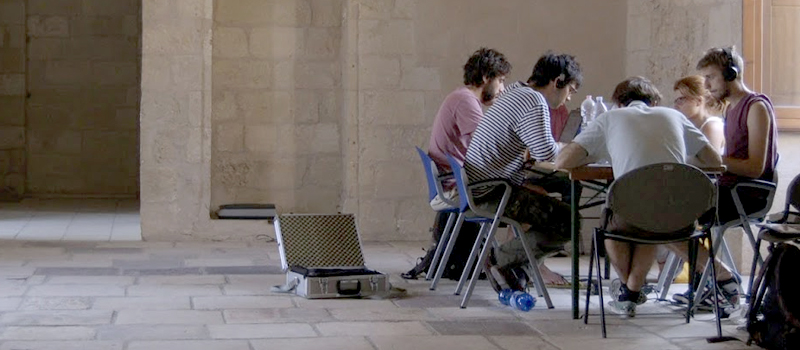
ENGLISH VERSION
X AND Y - TWO VARIABLES IS SEARCH OF IDENTITY
XY is a double research and cooperative making lab coordinated by a group of friends who believe in sharing knowledge. XY is a research lab. You listened well. Research.
The € 5.000,00 we ask you will help us to carry on the research once the workshop is over and to buy the material useful to the development of a modular open source neuroheadset and to develop a brand new project: Lantern.ino, which will allow you to interface any sensor or controller to a Canon camera in order to control all of its functions.
€ 5.000,00 is needed to buy the material needed to carry on our researches (to view the list look in the Italian section above).
We believe that the "Crisis" is an opportunity to try changing some processes, education first of all. We plant trees.
X is Postdigital - Low Budget, Do It Yourself, Networks and Algorithms
"New publishing" is a research area that push through the processing design, the crisis with the consequent scarcity of resources, self-publishing and digital and analog craft and the awareness of the central role of networks in our existence. The decision to use the English word "publishing" instead of the Italian "editor" is dictated by the fact that the Anglophone word retains a sense inherent the act of publication, the process through which publishing is made. Here’s some of the research project that will be developed during X:
Table 1 / Neuroheadset
In this table we’ll realize a neuroheadset prototype capable of recording the electrical activity of the brain on six channels. The project will be fully developed (hardware + software) and released open source. Through this prototype, it will be possible to test and develop dedicated applications for data collection, analysis of the waves, but also to generate outputs (visual and sound). A further possibility of application is the one together with Y table who’ll work at Lantern.ino to control the functions of a Canon through a neuroheadset. This table will see the participation of Eugenio Battaglia, biohacker and expert in neuroscience.Table 2 / Human Ecosystem
This table will be centered on the partnership between XYLAB and Near Future Education Lab, an international network of professionals, educators and students that work according to the principles of the hacker ethic to the development of new educational paradigms. The project is based on the technology of HUMAN ECOSYSTEM developed by Salvatore Iaconesi and Oriana Persico (the teachers who’ll guide the activity of the table) from the Art Is Opensource team.Table 3 / To be defined
We consider the opportunity of keeping some “open tables” critical to maintain the teaching method in order to define the activities on the first day during the initial brainstorming among students, tutors, teachers and staff.
Y is Hacking - Technological innovation, Social Innovation, Digital Storytelling
"Videomhacking" is a neologism which describes the interaction between hacking, technological innovation and digital storytelling aimed to transform the way we tell stories through the video.
Here’s some of the research project that will be developed during Y:
Table 1 / Lantern.ino
In this table we’ll realize a prototype of "lantern.ino”, which is a device with an hardware element (Arduino) and a software one (magic lantern), dedicated to Canon cameras with which you can control every function of the camera’s image control option making it interfaced with any type of input device and / or sensor, wireless or wired. The table will be coordinated by Marcus Ströbel, developer from the Magic Lantern team.Table 2 / Digital Storytelling
In this table we’ll investigate the language of cross-media narrative: videos, texts, images, including web and social networks, investigating how they’re transformed from one platform to another. The thinking over is aimed at deepening the chain of meanings production which is set up every time we tell a story. The relationship between form and content, as well as indicated by McLuhan in the Gutenberg Galaxy, is the core of this research project.Table 3 / To be defined
We consider the opportunity of keeping some “open tables” is critical to maintain the teaching method in order to define the activities on the first day during the initial brainstorming among students, tutors, teachers and staff.
X lab is a project by FF3300, a design and strategy company based in Bari and Pazlab a creative studio based in Lecce; Y lab is a project by Inuit, an association based in Bari and Dinamo Film, a film production company based in Bari.
MISSION
We’ll share with participants method and technologies that could make production segments already existent more efficient by reducing production costs, by stimulating the self as a form of self-employment and by developing hybrid design capabilities, outcome of contamination between different professions, thus opening up a world of opportunities. We'll develop 6 research projects, in which 60 students will be involved, along with more than 24 between teacher and tutors. All the produced material will be documented and filmed through our communication channels, social and web, and it will be released in opensource license.
TEACHING
One of the most important aspects of this project that we're asking you to support is teaching. We involved a large number of teachers, with cross-disciplinary skills in different fields, ranging from informatics to design, from semiotics to biology and neurosciences, in order to build a multi-disciplinary and an extraordinary working group. Teachers are supported by tutors, with technical skills of the highest level. The workshop is free, and a selection is made based on CV and portfolio of the participants.
Activities will take 8 hours per day, for an amount of about 100 hours and will include, besides the develop of the project works, one hour of "IT literacy" teaching.
The 33 + 33 participants will split in 3 + 3 research / project tables, each coordinated by 2 teachers and 1-2 tutors. Lectures (kept every day from 2 to 3 pm by one among teachers, tutors and staff) will be open to everybody and available on streaming on our website.
Once the workshops are over, a press conference involving partners and authorities will take place to show the reached goals.
WHO MAY PARTICIPATE?
Designers, makers and hackers in the publishing (digital and traditional) and video (cinema,tv,web) field.
Students and professionals about cinema, writing, script-writing or storytelling, informatics, interaction design. WANNABE "video" and "book" hackers. Digital artisans. Innovators. Pirates.
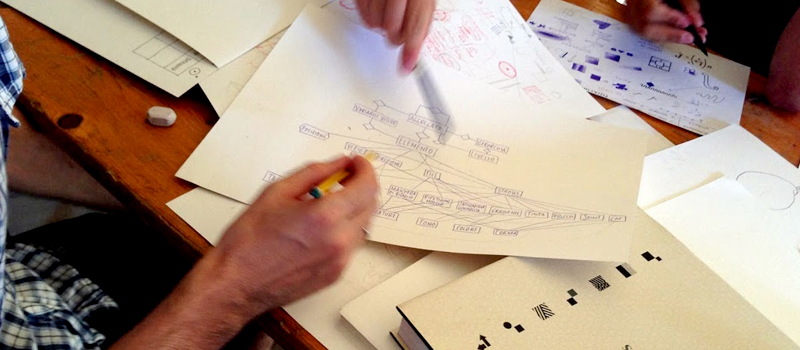
TEACHERS AND TUTORS
X Lab
Salvatore Iaconesi
is an interaction designer, robotics engineer, artist, hacker. TED Fellow 2012, Eisenhower Fellow since 2013 and Yale World Fellow 2014. He currently teaches Interaction Design and cross-media practices at the Faculty of Architecture of the “La Sapienza” University of Rome, at ISIA Design Florence, at the Rome University of Fine Arts and at the IED Design institute
Oriana Persico
holds a degree in Communication Sciences, is an expert in participatory policies and digital inclusion. She is an artist and writer. She has worked together with national governments and the European Union to the creation of best practices, standards and researches in the areas of digital rights, social and technological innovation, Digital Business Ecosystems (DBE), practices for participation and knowledge sharing
Mauro Bubbico
designer and teacher at ISIA of Urbino, among the leading experts in communications in Italy
Leonardo Romei
Lecturer of Semiotics and member of the Academic senate at Isia of Urbino; co-founder of the communication design studio QZR. He received the PhD in Communication sciences from the Sapienza University of Rome and worked in the ESCoM – Cognitive semiotics and new medias team at FMSH in Paris
Salvatore Zingale
is a researcher in the Department of Design of the Polytechnic University of Milan, where he teaches Semiotics of Design at the School of Design. He is the scientific coordinator of the research project “HumanitiesDesign Lab” of the Department of Design of the Polytechnic University of Milan.
Silvio Lorusso
artist and designer. His ongoing PhD research in Design Sciences at Iuav University of Venice is focused on the intersections between publishing and digital technology from the perspective of art and design. Since 2013, he manages the Post-Digital Publishing Archive
Eugenio Battaglia
biohacker with the BioPeers collective and student in molecular biotechnology with a internship specialization in behavioral and affective neuroscience. He’s consultant at Leukippos Institute and CytoComp (syntethic biology)
Alessio D'Ellena
works in the field of anarchic type-design, digital serendipity, inappropriate tools development and parametric typography. He is a graphic designer based in Milan, illustrator for Corraini Edizioni and professor in type design @ A.A.B.B.—Urbino
Emilio Macchia
graphic designer and researcher, former participant at the JvE Academie, Maastricht. Curator of “Fahrenheit 39” since 2011
Antonio Vergari
analyst and informatics, a.i. and automatic learning system expert from Politecnico di Bari
Danilo di Cuia
creative technologist with a background in graphic design and a focus in human-computer interaction. He worked for clients such as ITV, Google and BBC.
Jacopo Pompilii
visual designer, attending a master’s degree in Communication Design at POLIMI. His bachelor final thesis at ISIA Urbino — Iperlibro (Hyperbook) — focused on digital publishing and new reading experiences specifically designed for new digital media
Y lab
Marcus Ströbel
software developer, contributor of Magic Lantern
Cosimo Bizzarri
storyteller and journalist, he’s currently working as the executive editor of COLORS Magazine and as a tutor at the Design faculty of the San Marino University
Gianpaolo D'Amico
PhD in Computer Science at the University of Florence, is freelance creative technologist for digital media and founder of the blog sounDesign
Paolo Patelli
PhD candidate at Politecnico di Milano, researches and designs between architecture, media technologies and public spheres
Giacomo Leonzi
has a degree in Science, and he currently works as a developer and interaction designer around the world
Nicholas Caporusso
researcher in the field of human computer interaction, and hospital risk management, CEO at QIRIS
Michelantonio Trizio
information engineer, hacker and enterpreneur, CTO ad QIRIS
Luiz Romero
Journalist, infographist and screenwriter from São Paulo, Brazil. Writer at COLORS magazine and fellow at Fabrica research center. Collaborator for Superinteressante magazine
Lea Dicursi
video-maker, video-editor and producer based in Barcellona. She had worked for Benetton, Colors Magazine and Fabrica
Matteo Bencini
interactive and web designer at Lcd s.r.l. in Florence
Ruggero Castagnola
IxD and Creative Technologist. Iuav graduate, currently research fellow at PoliMi
Giuditta Vendrame
designer and currently enrolled in Social Design Master at Design Academy Eindhoven
THE PLACE
The labs, both free, will coexist in the gorgeous castle of Castrignano de’ Greci for the duration of two weeks. The hamlet where activities will take place is about 20 km far from the sea. Its location make it an ideal base to explore the Salento area. Castrignano is a very small hamlet, the castle is set downtown and it’s possible to easily move on foot or by bicycle.
REWARD LIST:
- 2 euro or more: public Thanksgiving on FB
- 10 euro or more: public Thanksgiving on FB + donor list on the site with logic Tagclouds
- 20 euro or more: public Thanksgiving on FB + donor list on the site with logic Tagclouds + tagclouds thanksgiving + 1 Postcard printed with stampomatica (http://www.stampomatica.com/)
- 35 euro or more: public Thanksgiving on FB + donor list on the site with logic Tagclouds + 6 Differents "full identity" Postcards printed with stampomatica (http://www.stampomatica.com/)
- 50 euro or more: public Thanksgiving on FB + donor list on the site with logic Tagclouds + silkscreened Tshirt + 1 Postcard printed with stampomatica (http://www.stampomatica.com/)
- 70 euro or more: public Thanksgiving on FB + donor list on the site with logic Tagclouds + silkscreened Tshirt + 6 Differents "full identity" Postcards full identity printed with stampomatica (http://www.stampomatica.com/)
- 100 euro or more:public Thanksgiving on FB + donor list on the site with logic Tagclouds + silkscreened Tshirt + Identity kit
- 250 euro or more: public Thanksgiving on FB + donor list on the site with logic Tagclouds + silkscreenedTshirt + Identity kit + screen-printed characters X and Y 3d printed
- 500 euro or more: public Thanksgiving on FB + donor list on the site with screen-printed logic Tagclouds + silkscreened Tshirt + a word of your choice with the Typeface identity printed in 3D
- 1,000 euro: Public thanksgiving on FB + donor list on the site with logic Tagclouds + silkscreened Tshirt + Identity kit + Drawbot ( http://vimeo.com/73767942 )
- 1,000 euro (for companies and/or organizations): public thanksgiving on FB + partership with logos on our website and on our communication outputs.
If you have any issues using the website and would like to help us by donating something, please feel free to contact us and we will be happy to assist you!
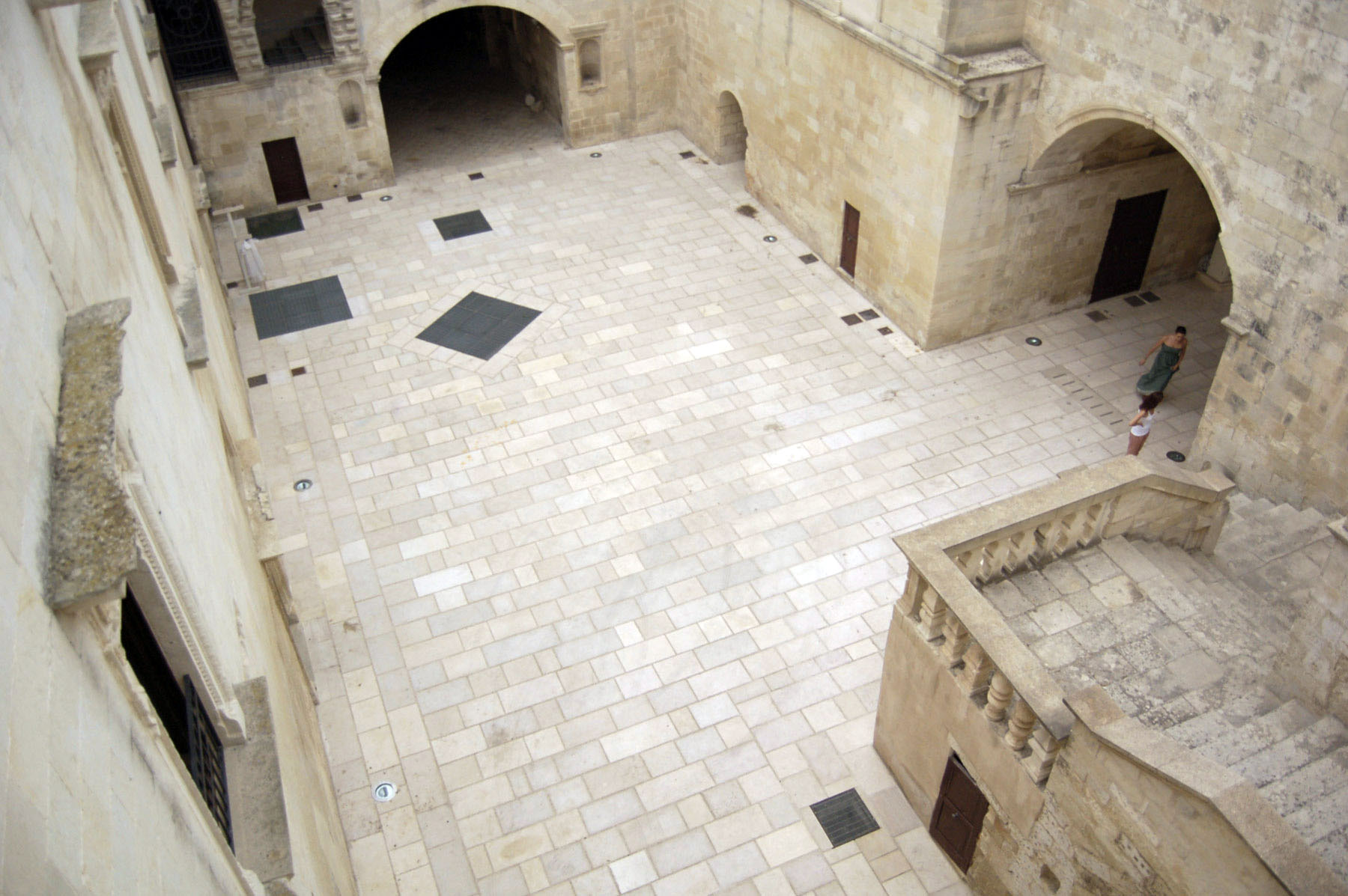
Laboratorio realizzato con il contributo dell'Iniziativa Laboratori dal Basso, azione della Regione Puglia cofinanziata dalla UE attraverso il PO FSE 2007–2013
Workshop funded with Laboratori dal Basso policy, by Regione Puglia and UE using PO FSE 2007-2013
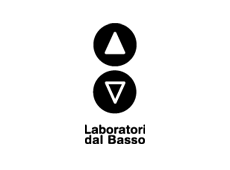


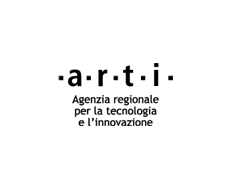
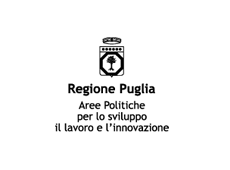
Pagina di output attivata!
I primi 3 giorni di XYLab
First three days of XYLab...
Available on Storify!
Project creator
- Name
- XY Lab
- associazioneinuit@gmail.com
Biography
Alessandro Tartaglia
Da piccolo sognava di fare l'ingegnere genetico. A 13 anni inzia a disegnare lettere appassionandosi ai graffiti. Si laurea in Design e comunicazione visiva, con una tesi sugli effetti di senso tipografici all'ISIA di Urbino. Fonda prima una e-zine indipendente, bilingue e gratuita, poi assieme a Nicolò Loprieno e Carlotta Latessa la rivista diventa uno studio di design della comunicazione. Negli anni lavora prevalentemente a progetti culturali (Festival internazionale di Andria Castel dei Mondi), istituzionali (diversi progetti per vari assessorati della Regione Puglia), sociali (ad esempio Meeting mondiale dei Giovani) e politici (Fabbrica di Nichi, La Poesia è nei fatti, Il carattere e l'identità del PD, la campagna primarie di Bersani 2013) con il suo studio, FF3300. Insegna al Politecnico di Bari per 3 anni prima di essere cacciato dopo essere entrato in conflitto con il preside della facoltà di Architettura. Collabora stabilmente con diverse università italiane, dove ha tenuto e tiene seminari e workshop: ISIA di Urbino, Roma University of Fine Arts, CFP Bauer di Milano, La Sapienza di Roma, per citare le più importanti. Si interessa di comunità e processi, studia memetica, reti ed algoritmi.
When he was a child his dream was to become a genetic engineer. At 13 he started drawing letters and he felt for graffiti. He graduated in Design and Visual Communications at ISIA in Urbino, with a thesis on the effects of typographical sense. Co-founder, along with Nicolò Loprieno and Carlotta Latessa, of an independent free and bilingual e-zine which then became the communication design studio, FF3300. Over the years he mainly worked for cultural (International Festival of Andria “Castel dei Mondi”), institutional (several projects for various departments of the Puglia region), social (e.g. World Youth Meeting) and political (Fabbrica di Nichi, “La poesia è nei fatti”, the character and identity of the Democratic Party for the campaign of Bersani in 2013) project with his studio, FF3300. He teached at the University of Bari for 3 years, before being kicked out after getting into conflict with the Dean of the Faculty of Architecture. He collaborates with several Italian universities, where he holds seminars and workshops: ISIA of Urbino, Rome University of Fine Arts, CFP Bauer in Milan, University La Sapienza of Rome among the most important. He is interested in communities and processes, he studies memetics, networks and algorithms.
Alessandro Balena
Da piccolo non prendevo sonno, se non avevo con me, sotto il cuscino la lama del frullatore o il trapano. Quando ne avevo 5 ho dato fuoco alla casa in cui vivevo, e capii a stento il disappunto della mia famiglia. La scuola mi annoiava, e preferivo rimanere a casa a smontare giocattoli ed elettrodomestici o viaggiare. La mia sveglia biologica è stata settata sull'inizio della puntata di McGyver per molti anni. A 16 anni ho cominciato a sperimentare in campo video, imparando i rudimenti di questa tecnologia, nel momento in cui l'analogico lasciava il posto al digitale e stava per nascere Youtube. A 19 anni ho aperto una società di produzione audio-video con degli amici, grazie alla quale ho potuto sperimentare in autonomia nel campo dell'audiovisivo e mi sono formato come DOP. Nel 2013 quest'avventura è terminata, sentivo necessità di maggiori stimoli. Contemporaneamente a questi avvenimenti, sono entrato in contatto con il mondo del making e dell'interaction design, collaborando con FF3300 durante il laboratorio X. È stato come incendiare un'altra casa. Questa esperienza mi ha stimolato ad intraprendere un cammino complementare. Oggi collaboro con Dinamo Film come Digital Information Technology, e mi occupo di making e hacking delle cose, orientate in particolar modo al video e al design.
As a child I could not take sleep if the blade of our blender or a drill were not under my pillow. When I was 5 I set fire to the house where I lived, and I hardly understood my family's aversion. School bored me, and I preferred to stay home disassembling toys and household appliances, or travelling. My biological clock had been set on the beginning of a McGyver episode for many years. At 16 years old I started playing around with video, learning the basics of its technologies, at the times when analogue gave way to digital and Youtube was about to born. When I was 19, I opened an audio video production company with three friends where I’d been able to autonomously experience in the field of audiovisual and I trained as a PDO. This adventure ended in 2013, as I felt the need of being more stimulated. Simultaneously I got in touch with the world of making and interaction design, while collaborating with the FF3300 studio at X lab. It was like giving fire to another house. This experience prompted me to undertake a complementary way. Today I work with Dinamo Film as a Digital Information Technology, and I deal with the making and hacking of things, specifically oriented to video and design.
The Backers of this project
The names in this list are updated every 10 minutes. If you can't see your name and you've just donated, try to come back later! Cosimo Bizzarri
Cosimo Bizzarri Francesca Depalma
Francesca Depalma Angelo Cignarelli
Angelo Cignarelli maurizioguarino
maurizioguarino Gino Roncaglia
Gino Roncaglia Mirko Balducci
Mirko Balducci Andrea Zanni
Andrea Zanni Michele Pastore
Michele Pastore Beppe De Bartolo
Beppe De Bartolo Salvatore Zingale
Salvatore Zingale tania guerra
tania guerra ANTONIO Montillo
ANTONIO Montillo bowery poetry club
bowery poetry club Francesca Pedranghelu
Francesca Pedranghelu- Rino Scoppio
 Maria Elisa Torre
Maria Elisa Torre Marco Balena
Marco Balena Walter Veneziano
Walter Veneziano antar
antar paolo cappa
paolo cappa Francesca Schioppo
Francesca Schioppo- Salvatore Rizzello
 Francesco Leoni
Francesco Leoni Emanuele Colazzo
Emanuele Colazzo Raphael Aboav
Raphael Aboav Laura Bortoloni
Laura Bortoloni Sport Parma
Sport Parma Salvatore Graziani
Salvatore Graziani Rossella Tursi
Rossella Tursi Luca Caizzi
Luca Caizzi annibale d'elia
annibale d'elia Leva Fiftyseven
Leva Fiftyseven Carla Palladino
Carla Palladino davide tomatis
davide tomatis Nico Lò
Nico Lò Daniele Severo
Daniele Severo- Paolo Ferrante
- Ana Maria Cojocaru
 Paolo Paticchio
Paolo Paticchio adriano guarnieri
adriano guarnieri Luigiantonio Calò
Luigiantonio Calò daria kirpach
daria kirpach Marco Piazzolla
Marco Piazzolla Pier In
Pier In Gianvito Rutigliano
Gianvito Rutigliano Giovanni Dello Iacovo
Giovanni Dello Iacovo Francesca Ungolo
Francesca Ungolo Antonio Matarrese
Antonio Matarrese Claudia Lorusso
Claudia Lorusso Vincenzo Schiraldi
Vincenzo Schiraldi Giulio Deliso
Giulio Deliso Giusy Ottonelli
Giusy Ottonelli Nina Simone
Nina Simone Siusha Fiorini
Siusha Fiorini Ang Ta
Ang Ta Carmine Bellucci
Carmine Bellucci Riccardo Ghignoni
Riccardo Ghignoni Gianluca Falcone
Gianluca Falcone Gianvito Fanelli
Gianvito Fanelli Luigi Sanasi
Luigi Sanasi camilla cecchi
camilla cecchi Marco Goran Romano
Marco Goran Romano Rosanna Nuzzi
Rosanna Nuzzi Antonella Ficarra
Antonella Ficarra Alberto Cazzato
Alberto Cazzato Mattia Dell'Anna
Mattia Dell'Anna- Simone Paoli
 Pietro Dipalma
Pietro Dipalma Paola Taccardi
Paola Taccardi Marco Lotito
Marco Lotito valentina caldarola
valentina caldarola Alessandro Tartaglia
Alessandro Tartaglia Teo Miscia
Teo Miscia
Project funded successfully!
Choose your reward
- € 2 or more18 backersRingraziamento pubblico su FB
- € 10 or more24 backersRingraziamento pubblico su FB + Lista donatori sul sito con logica Tagcloud
- € 20 or more11 backersRingraziamento pubblico su FB + Lista donatori sul sito con logica Tagcloud + Ringraziamento Tagcloud + 1 Cartolina stampata con stampomatica (http://www.stampomatica.com/)
- € 35 or more3 backersRingraziamento pubblico su FB + Lista donatori sul sito con logica Tagcloud + 6 Differenti Cartoline dell'identità del laboratorio completa stampata con stampomatica (http://www.stampomatica.com/)
- € 50 or more10 backersRingraziamento pubblico su FB + Lista donatori sul sito con logica Tagcloud + T-shirt serigrafata + 1 Cartolina stampata con stampomatica (http://www.stampomatica.com/)
- € 70 or moreNo backersRingraziamento pubblico su FB + Lista donatori sul sito con logica Tagcloud + T-shirt serigrafata + 6 Differenti Cartoline dell'identità completa del laboratorio stampata con stampomatica (http://www.stampomatica.com/)
- € 100 or moreOne backerRingraziamento pubblico su FB + Lista donatori sul sito con logica Tagcloud + T-shirt serigrafata + tutto il materiale di identità prodotto
- € 250 or moreOne backerRingraziamento pubblico su FB + Lista donatori sul sito con logica Tagcloud + T-shirt serigrafata + tutto il materiale di identità prodotto + Caratteri X eY stampate in 3d
- € 500 or moreNo backersRingraziamento pubblico su FB + Lista donatori sul sito con logica Tagcloud + T-shirt serigrafata + Una parola a piacere stampata in 3D con il carattere dell'identità
- € 1000 or moreNo backersRingraziamento pubblico su FB + Lista donatori sul sito con logica Tagcloud + T-shirt serigrafata + Cartoline + locandina + Drawbot (http://vimeo.com/73767942)
- € 1000 or moreOne backerPer aziende e/o istituzioni: Ringraziamento pubblico su FB + logo come partner sul sito e sui vari Output comunicativi prodotti